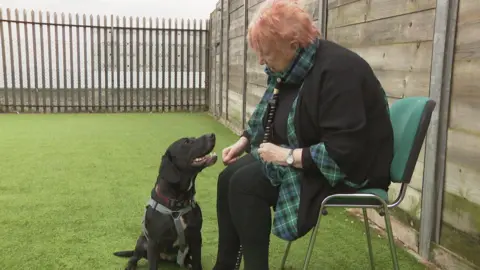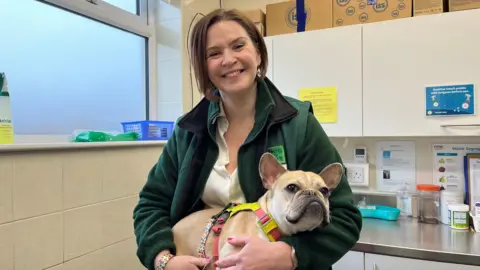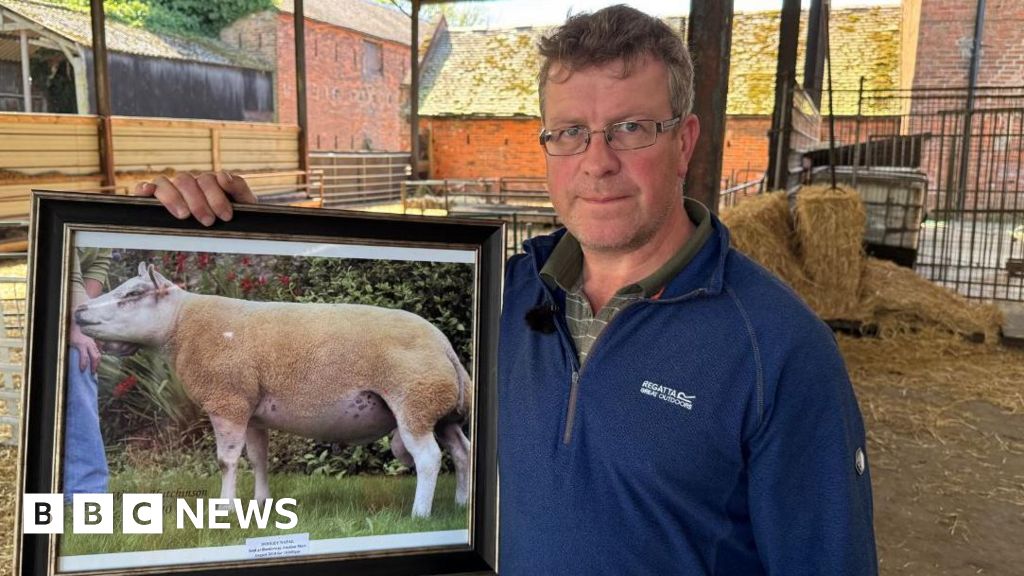BBC Scotland political correspondent
 Getty Images
Getty ImagesA code of practice for getting a dog is to be drawn up in Scotland under a new law passed by MSPs.
The Welfare of Dogs Bill aims to promote responsible ownership by making sure people understand the commitment required before they take on a pet.
Within 12 months the government will need to draw up a code, effectively a checklist of questions about whether the new owner has considered whether they have the time, space and money needed.
That would then inform a certificate, to be signed by the new owner and the person they are acquiring the dog from, to underline that both sides understand the commitment involved.
The new law is a member’s bill introduced by SNP MSP Christine Graham, who has been pushing for changes for more than seven years.
The Midlothian South, Tweeddale and Lauderdale MSP first tabled a Welfare of Dogs bill in 2018 but saw it fall at the end of a term of parliament curtailed by Covid.

The inspiration behind the bill can readily be seen at Edinburgh’s dog and cat home, where Ms Grahame is a regular fixture – she literally has her name on the wall.
The facility is currently at capacity for dogs following a “worrying” increase in strays being brought in.
One of them is Susan, a four-year-old labrador-staffie cross. She is a friendly dog who has clearly had some training – she can sit, and offer a paw in exchange for a treat – but came in as a stray in October, having presumably been abandoned.
The home’s chief executive Lindsay Fyffe-Jardine says dogs do come to them because good owners see their circumstances change, through no fault of their own.
But she said there was also an issue with “decisions which perhaps aren’t talked through before purchase”.
She said: “It’s as easy to go out to the supermarket to buy your cereal as it is to get a dog from lots of different places and the reality is not everyone stops to think ‘can I afford this dog? can I fit them into my life?’.
“Because it’s a huge commitment.”

This is where Christine Grahame’s bill comes in.
The new law requires the government to produce – within 12 months – a code of practice which sets out steps that should be taken when buying, selling or giving away a dog.
This code must include a checklist of questions which prospective dog owners should ask of themselves and of the person they are acquiring the animal from.
These questions are intended to fit on a single side of A4 paper, and would include things like:
- whether the breed of dog is suitable for the new owner
- whether they have a suitable environment to house it
- whether they have time to exercise regularly
- whether they can afford the costs of having a pet on an ongoing basis
- and whether they can commit to caring for the dog throughout its entire life
The new owner would then have to sign a certificate showing that they have considered the questions set out in the code, while the seller would sign it to attest that they are content to hand the dog over.
This certificate isn’t a licence or a legally binding document. The point is to make people think carefully about what dog ownership entails before they take on a new pet.
 Getty Images
Getty ImagesThere is already a 28-page code of practice for dog owners, which was introduced in 2010 under previous animal welfare reforms.
But Ms Grahame contends that few will have actually read that code, and that one which needs to be signed up to at the point of buying a dog would focus minds at the critical moment.
The Conservatives pushed to simply merge the two codes at committee stage, but otherwise there has been little dissent over the plans as they now stand.
The bill originally also included proposals to set up a Scotland-wide database for registering all dogs bred in unlicensed litters.
However, this was dropped after the government said it was “not convinced that developing a registration scheme would be an effective or proportionate way” to tackle issues around irresponsible breeding.
The final debate on the bill also included a row about shock collars, after Green MSP Ross Greer attempted to add in a ban on them at the final stage of debate.
This was voted down after the government pledged to return to the issue once further independent reports on the devices has been completed later this year.

















Leave a Reply